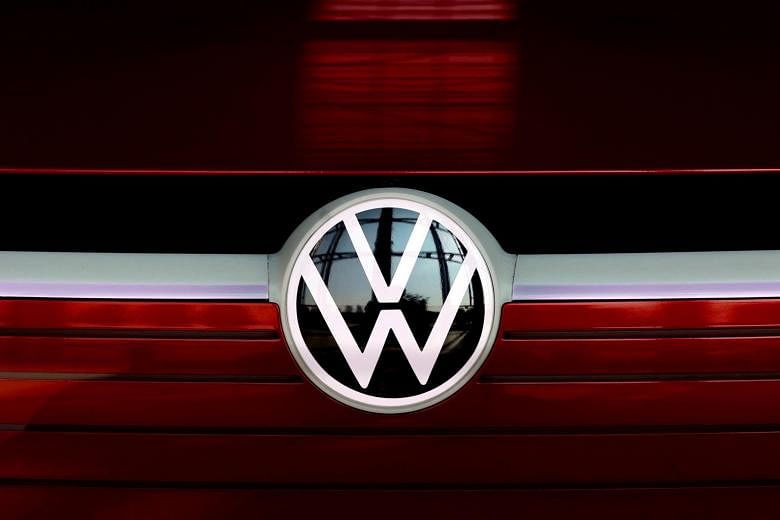WASHINGTON (BLOOMBERG, REUTERS) - Volkswagen of America's purported name change to "Voltswagen" was an elaborate April Fool's marketing stunt that may have misfired.
On Monday, the German automaker briefly posted, then removed, a draft press release on its website related to branding, sparking media speculation that company was changing its name to promote electric vehicles. VW published the announcement in full on Tuesday, pledging to rebrand as "Voltswagen" in the US, "a public declaration of the company's future-forward investment in e-mobility."
At least one analyst wrote a research note praising the name change. VW's preferred shares closed 4.7 per cent higher. Ordinary shares closed up 10.3 per cent.
Later Tuesday, the company fessed up.
"The renaming was designed to be an announcement in the spirit of April Fool's Day," VW said in a statement after removing the release from its US media site. "We will provide additional updates on this matter soon." Earlier, a VW spokesperson at the German manufacturer's headquarters in Wolfsburg called it "an interesting idea" from the marketing department.
VW came under criticism on social media for its misleading news release, some commenters recalling the company's "Dieselgate" scandal and years of misleading customers and regulators. Volkswagen in 2015 admitted to using illegal software to rig diesel engine tests in the US, sparking Germany's biggest corporate crisis and costing the carmaker more than 32 billion euros (S$50.5 billion) in fines, refits and legal costs.
Volkswagen may have gone too far in its effort to gin up buzz for VW's electrification push, and the electric ID.4 crossover, which is arriving in US showrooms. Chief executive officer Herbert Diess has taken on a more colourful role on Twitter and professed his admiration for Tesla CEO Elon Musk, all part of an effort to establish VW as an electric pioneer and distance the company from the Dieselgate scandal.
Not funny
Those stakes are too high to joke about, said Tom Morton, chief strategy officer for the US at advertising firm R/GA in New York.
"This is the most pressing challenge of the auto industry, 'Can you go electric?'," Mr Morton said. "Choosing to joke about it undermines their commitment."
The German automaker has become a stock market darling of late with its rapid-fire EV announcements. The common shares have soared 88 per cent in 2021, giving it a market value of 144.1 billion euros (S$227.6 billion).
Mr Diess held a Tesla-esque "Power Day" presentation earlier this month in which he pledged to build six new battery factories in Europe. VW plans to deliver 1 million plug-in hybrid and fully electric vehicles this year, and Diess aims to surpass Tesla in EV sales no later than 2025. Some analysts predict it will happen much sooner.
It's not unheard of for companies to use humour to gain publicity for a radical change, Mr Morton said. IHOP famously renamed itself IHOB - the International House of Burgers - to draw attention to its lunch menu.
"That's mainly being done by fast-food brands, where the stakes are lower and they need a bit of hoopla," Mr Morton said. "This is about a fundamental change of direction for a world-shaping industry and also one where there's a lot of baggage."
Prior gaffe
It wouldn't be the first time VW committed a marketing gaffe. The automaker caused an uproar last fall with a video clip that showed a black man being controlled by a giant white hand.
The clip produced by Omnicom Group's Berlin-based subsidiary Voltage sparked widespread criticism and tensions within the company. The German automaker's powerful labour representatives called it a "low point" and demanded an overhaul of social-media marketing.

